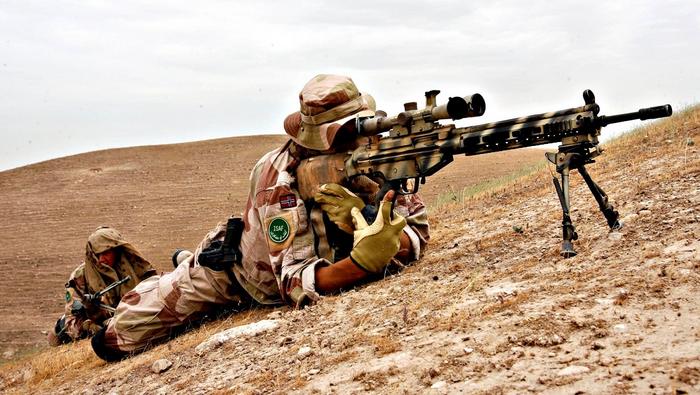Taking another person’s life doesn’t necessarily damage a soldier’s mental health, according to groundbreaking Norwegian research that challenges conventional wisdom about combat psychology. The determining factor appears to be the nature of the mission and how well it aligns with soldiers’ expectations.
A comprehensive study examining over 14,600 Norwegian veterans has revealed striking differences in how soldiers from different missions process the act of killing in combat. The research, published this month in Armed Forces & Society, found that peacekeeping veterans suffered significant mental health problems after taking lives, while combat-mission veterans showed no such correlation.
“Killing another person does not in itself seem to be something that goes against human nature, and it doesn’t necessarily harm the mental health of the person who does it,” said Andreas Espetvedt Nordstrand, lead researcher and head of research and development at the Institute of Military Psychiatry, Norwegian Armed Forces.
Nordstrand’s team examined all Norwegian veterans who served in Lebanon (10,605) and Afghanistan (4,053), comparing their post-service mental health across multiple dimensions including PTSD, depression, insomnia, anxiety, alcohol consumption, and quality of life.
The results revealed a stark contrast. Lebanon veterans who had killed in combat were significantly more likely to experience mental health issues afterward. For Afghanistan veterans, however, taking a life had no measurable impact on subsequent mental wellbeing.
“Taking a life in combat was a key factor among the veterans who had served in Lebanon,” Nordstrand explained. “But for the Afghanistan veterans, taking a life had no subsequent impact on their mental well-being. We did not identify a trend in any of the variables we investigated.”
What accounts for this difference? Context appears to be everything. Lebanon was primarily a peacekeeping mission, while Afghanistan involved more aggressive combat operations. The differing expectations and mindsets shaped how soldiers processed their actions.
“Participating in a peacekeeping operation seems to make soldiers much more vulnerable to the aftermath of killing another person than soldiers involved in combat missions,” said Nordstrand. “We believe this supports the view that it is primarily violations of group norms and mission guidelines that make actions like killing harmful.”
These findings contradict longstanding psychological theories suggesting that killing inherently creates “moral injuries” regardless of circumstances. Instead, the research indicates that clear mission parameters and appropriate mental preparation can create psychological resilience.
Professor Leif Edward Ottesen Kennair, who contributed evolutionary psychology perspectives to the study, emphasized the importance of mindset: “The mindset with which soldiers approach a mission determines whether they expect, are prepared for and interpret the intense aspects of the role. If they are in war mode and fully aware of it, they will deal with it completely differently.”
The research has important implications for military training and deployment policies. “We believe the findings show that we must be acutely aware of the rules of engagement, expectations, and the mission guidelines we set when sending soldiers on armed missions,” Nordstrand noted.
Despite the clear results, publishing proved challenging. “This is a sensitive topic, and the findings may be perceived as somewhat taboo,” explained Nordstrand. “In civilized, humanistic societies, people often dislike the idea that taking a person’s life can be entirely unproblematic for soldiers, as long as it happens within the rules of war.”
As nations worldwide increase military capabilities amid rising global tensions, Nordstrand believes addressing this taboo subject is more important than ever: “Soldiers kill, and being able to do that is actually a key part of their job. The findings are a clear call to take both political and collective responsibility when sending soldiers on dangerous missions, ensuring that they do not feel as though they have done something that goes against the norms of the society they are part of.”
If our reporting has informed or inspired you, please consider making a donation. Every contribution, no matter the size, empowers us to continue delivering accurate, engaging, and trustworthy science and medical news. Independent journalism requires time, effort, and resources—your support ensures we can keep uncovering the stories that matter most to you.
Join us in making knowledge accessible and impactful. Thank you for standing with us!

